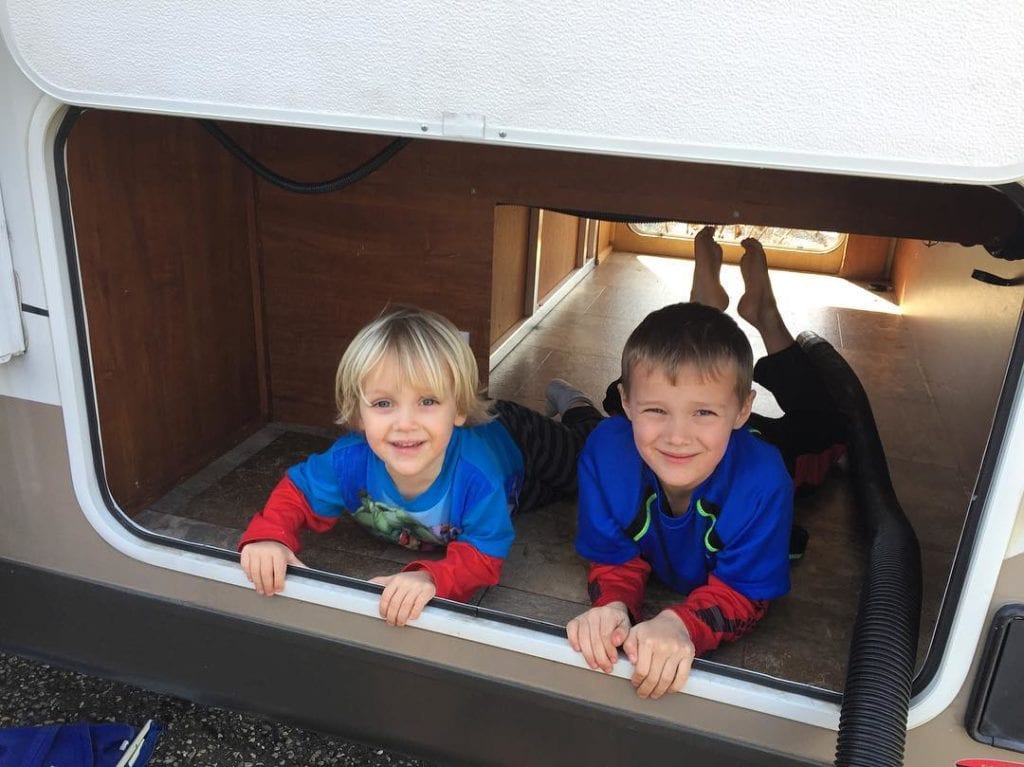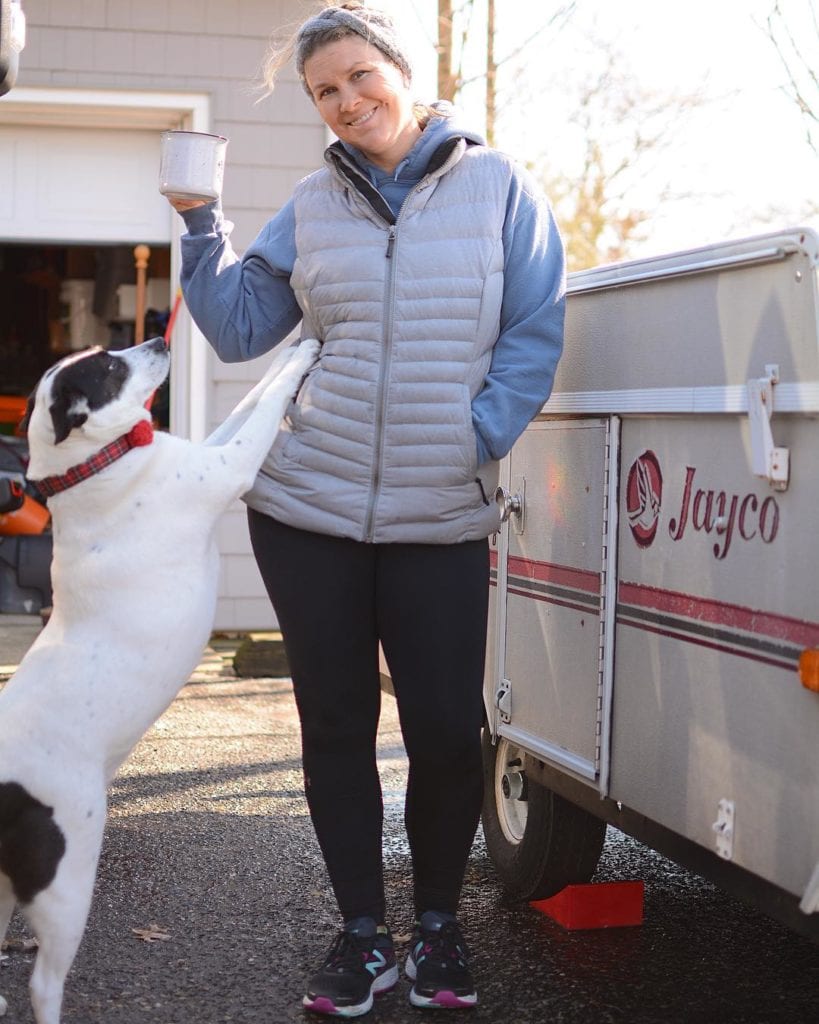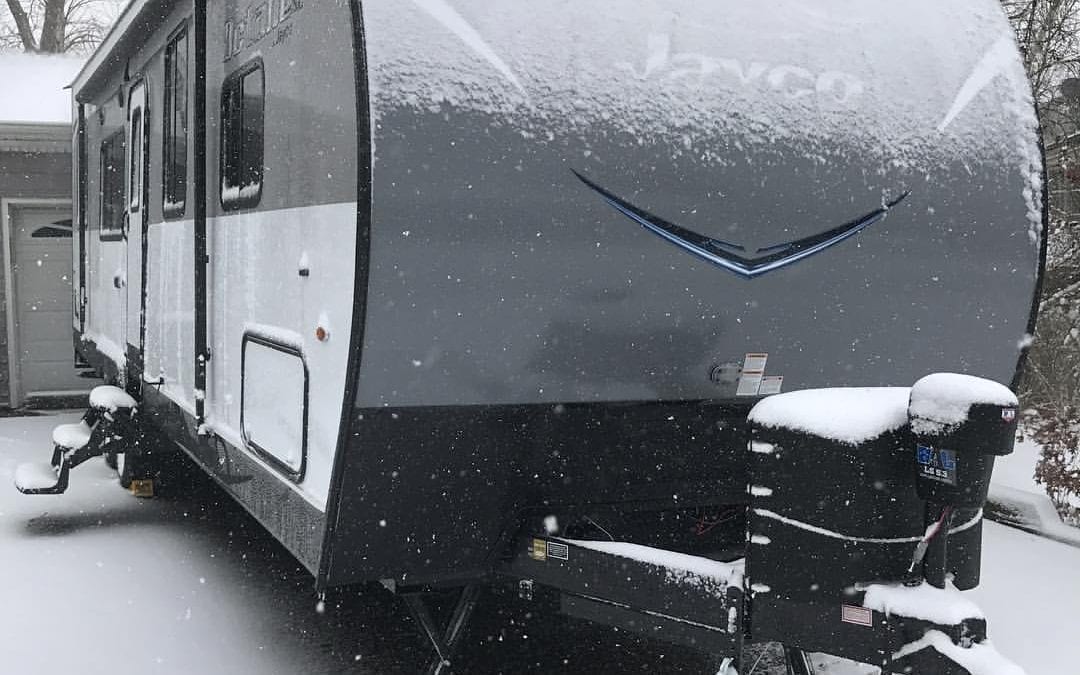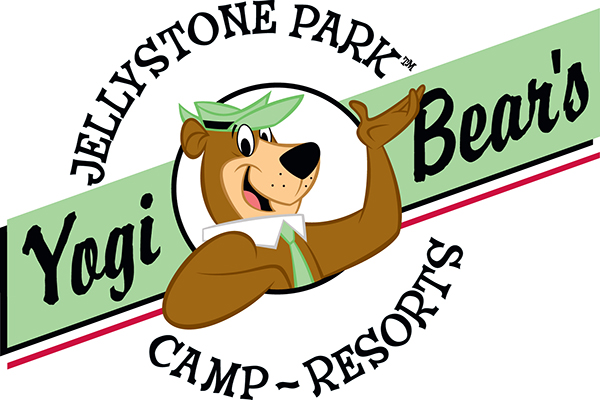Ready to give your RV the pink drink? It’s that time of year when folks across the northern parts of the country are putting their RV babies to bed for the winter. With that in mind, we wanted to share some quick reminders for winterizing your RV.
Technically, winterizing is just removing all the water from your RV and placing RV antifreeze into your pipes and tanks. But a good winterizing routine will actually include more attention to what it takes to safely store your RV for months at a time.
Last year, we interviewed Mark Polk from RVOnlineTraining.com and did an extensive winterizing episode full of expert information. If you are a first time RV owner, we highly recommend checking out that in-depth information. You can read or listen to that here.
But consider this a quick review of the highlights. Between meeting people at RV shows and moderating an RV Facebook group, we hear a lot of stories. Many of those stories include mistakes new owners make and the damage caused to RVs. In order to guarantee that you don’t make those same mistakes, here are our quick reminders for winterizing your RV.
Reminders for Winterizing Your RV: Remove Almost Everything

Sure, you can leave those pots and pans in the RV. However, you will want to remove all liquids, fragrances, blankets, and towels. Shampoos, laundry detergents, and cleaners can freeze and expand causing a mess and destroying wood and counter surfaces over the course of a winter. We learned this the hard way as have a lot of other RVers we’ve spoken to. Fragrances can attract critters and so can comfy blankets and pillows which are perfect for nesting…yuck.
Even though it a pain, you’re best bet for keeping your RV safe over winter is to place all these items into bins and store them in a safe location. Restocking in the spring will be a breeze if you keep everything organized and in one place.
Reminders for Winterizing Your RV: Don’t Rely on Facebook for Pest Control Strategies
RV groups on social media can be really helpful with a lot of things, but we’ve seen our fair share of terrible advice when it comes to pest control. Let’s just say that for every person that swears by dryer sheets and Irish Spring soap, we’ve heard 10 people say those things were a giant fail.
Here’s what really does work: keeping the critters out of your RV to begin with. Look for any possible way into the RV (gaps between the pipes and walls, vents, open underbellies) and seal those up as best you can with foam insulation, Brillo pads, or some type of sealant. You’ll also want to set traps inside just in case something does get in the camper. This will minimize any damage that could occur.
Reminders for Winterizing Your RV: Walk the Roof
Many RV owners inspect their roofs in the spring, but forget to do the same thing in the fall before they put the RV into storage. It is so important to catch any cracks or abrasions before the winter, when rain and snow can puddle and seep into the roof. If you feel uncomfortable inspecting and maintaining your RV roof, don’t worry! Look for a mobile RV tech in your area who can check out your roof and winterize your RV. It’s not that expensive when you consider the amount of money you have invested in your rig. When we are personally too busy to winterize, our mobile tech does it for about $100. Worth every penny.
Reminders for Winterizing Your RV: Store Your Batteries Properly
We were recently chatting with an RV tech who said he couldn’t believe the amount of RV owners who didn’t take proper care of their ‘house’ batteries. He told us that while the typical RV deep cycle batterie should last about five years, but only lasts one or two because folks don’t maintain them properly. Make sure you remove your deep cycle batteries from the RV and store in a dry place for the winter. Mark Polk recommended a tire minder in our last winterizing episode. You can also get his battery maintenance e-course here.
A quick side note: One of the benefits of our AGM batteries is that they do not require the same maintenance as our old RV batteries did. They don’t need to be removed from the RV for the winter as they are not temperature sensitive. Therefore we can use our solar power throughout the winter months even when our RV is ‘winterized’. We also don’t need to monitor the water levels which is another nice perk.
Another quick side note: For those of you with generators, you’ll want to look into proper maintenance for those as well. Most generators need to be run a minimum amount of time per month to stay in top operating condition. Know the guidelines for your own generator and follow them to protect that expensive investment.
Reminders for Winterizing Your RV: Visit Your RV as Often as Possible

This is truly a case of an ounce of prevention being worth a pound of cure. Most extreme RV damage happens over time, whether its from water or pests. If you catch a problem early, it will be less likely to be a serious or expensive fix. If you are storing your winterized rig at home, pop your head into the rig once every week or two. Look inside cabinets and under beds for any hitchhikers. Walk around the outside to check seams and seals.
If your RV is in storage, make the time to visit at least once a month. It might seem like a chore you just don’t have time for, but this is an important one if you want your RV to be ready for adventures come Spring.
Reminders for Winterizing Your RV: The Wrap Up
Remember, winterizing your RV really just means removing all the water from the rig and putting in RV antifreeze. But to keep your RV in tip top condition, you need to go a step further and make sure you are storing your RV correctly. Remembering all these other maintenance tasks will ensure your RV is ready to hit the road when warmer weather finally returns.
And when it does, we’ll see you at the campground!
Stephanie + Jeremy

Podcast: Play in new window | Download












